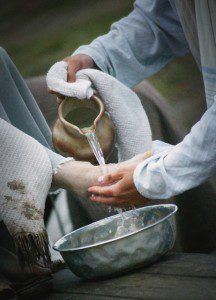I am two years away from the completion of my term of service as mother to teenagers. Two years. I have learned a lot in this decade and a half of serving on the frontlines, possibly the most profound lesson being: I cannot control the behavior of other people. I can only control my own behavior.
This is a good lesson for life in general, not just in the periods of life when you’re sentenced to hard labor, like parenting teenagers. You can’t control the behavior of other people. But you can control your own behavior. This has led me to a farewell I use every time I get off the phone with one of my teenagers…or hug him goodbye on a trip out of town…or see her off to a night out with friends. “I love you,” I always say, and…”DON’T FORGET TO MAKE GOOD CHOICES.”
I have become the subject of some ridicule for this constant refrain, and not just from my teenagers. My friends think it’s pretty funny, too. So funny, in fact, that it is not uncommon for friends or teenagers to now sign off our conversations with their cheery and slightly sarcastic, “Don’t forget to make good choices…!” directed at me.
Tonight we find ourselves entering ever deeper into the darkness of this week and we have all kinds of choices to make throughout this experience, primarily and most powerfully because the beautiful, terrible thing about Holy Week is that it won’t let us pretend.
And we’re so good at pretending, aren’t we? We’re masters, really. With our possessions and our reputations and our associations, we have ample material for painting intricate depictions of how we hope the world will see us: successful, beautiful, happy, fulfilled, loving, generous, pious…perfect.
Well, we wouldn’t go so far as to say “perfect,” exactly, but we sure wouldn’t stop you if you wanted to make that leap. You know what I mean?
Every morning we get out of bed, gather together the broken pieces of ourselves and bundle them up in shiny packaging as we head out the door to face the day. And sometimes we’re pretty good at keeping it all together.
Until we’re not.
Until the thick and unrelenting façade of perfection begins to thin, to fray. Until shiny versions of ourselves start to tarnish a bit. Until our humanity leaks out around the edges and the world begins to notice we’re not as wonderful as we’d seemed.
The beautiful, terrible thing about Holy Week is that it won’t let us pretend.
What an intense irony Easter Sunday is, when we show up to a beautifully decorated worship space ringing with the most incredible music, all decked out in our finery, smiling in the glow of resurrection good news…after a whole week that has disallowed our carefully tended façades, that has unrelentingly forced us to confront the raw and pain-filled reality of the human experience with all it’s ugliness: dirt, pain, betrayal, disappointment, sweat, spit, blood, sorrow, tears, sleeplessness, death.
The beautiful, terrible thing about Holy Week is that it won’t let us pretend.
Tonight we read a story from John’s gospel that is filled with moments of raw and unrelenting humanity. The disciples were gathered to share the Passover meal together, like the family they had become. Before the meal began, Jesus—who knew what was about to face all of them—got up from the table, took off his outer robe, and tied a towel around himself. Then, he poured water into a bowl and began to wash his disciples’ feet and wipe them with the towel wrapped around his waist.
That’s what the text says.
It doesn’t really mean that much to us, as washing feet is not something we do often (only once a year around here, in fact). But when people were invited to dinner in Jesus’ day they always had to walk along dusty roads, and their feet became caked with dirt. It was customary to be greeted at the door with a towel, a basin, and water to wash guests’ hands and feet before a meal. Of course it was usually not the host of the dinner who washed the guests’ feet—it was always an unnamed servant.
So you can see the shocking situation Jesus sets up here—not unlike the shocking foot washing scene we heard about with Mary a few weeks ago.
And it’s not just the act of washing his disciples’ feet—you’ll notice that Jesus physically takes on the role of servant. He takes off his outer robe and ties a towel around himself as if to say: I’m getting real here. I’m putting all of who I am into this act of service, a metaphor for how I am asking you to live your whole lives.
Of course Jesus will live out in real and terrible horror the level of his commitment to put his life on the line, but here he does it with a towel.
And it freaks everybody out.
Why?
Because Jesus was being real. Vulnerable. He got down on his knees and served his friends in a way that put him, not at the top of the pile, but at the very bottom. Not the shiniest, most perfect; but raw, genuine humanity. Real.
Some of the disciples protested; this made them very uncomfortable, and Jesus knew exactly why. When Peter spoke up, Jesus answered: unless I wash you, you have no share with me…which likely meant something like: “Unless you are willing to put your whole selves into living out the power of vulnerability and the commitment to elevating the least among us, you have totally missed the point. You have no place here.”
Oh man, the beautiful, terrible thing about Holy Week is that it won’t let us pretend.
Because Jesus isn’t providing us one sliver of nuance here. He’s taking off his clothes and tying a towel around his waist, for goodness sake! Give up your lives to serve the least among you—that’s the essence of the gospel, the one picture Jesus wants to leave with his followers before they head off into a dark night and even darker next few days.
Jesus is being clear. But the thing is: like the disciples, we can’t stand that either—that call to authenticity and vulnerability, to seeing myself as I truly am and serving others with the same love God has shown us. We’d rather stay, Claudio Caravahles says with “a bloody Jesus image or an empty cross so we can use it as a shield against our self-enclosed lifestyles, our nice detachment…”.[1]
The beautiful, terrible thing about Holy Week is that it won’t let us pretend.
…or maybe, it will.
Tonight I can’t let go of the seventeenth verse in John’s thirteenth chapter, where Jesus says to his disciples: “If you know these things, you are blessed if you do them.” That sounds a whole lot like a choice to me.
We’re spending this whole week watching Jesus live into the raw reality of the human experience, dragging his disciples along with him kicking and screaming. It’s like Jesus was saying: “Let’s get real here, for once! Let’s be honest about the dirt and pain and failure and frailty of our humanity! Let’s love each other for who we really are, instead of for who we’d like to pretend to be.” When Jesus knelt down to wash the feet of his disciples before dinner on the night he was betrayed, he was acting out that plea in live color, clear and obvious.
But notice Jesus uses one little word twice here; the word is “if.” “IF you know these things, you are blessed IF you do them.” There’s no doubt that you and I know these things, so I guess what Jesus leaves us with here is a choice: Will we do them? Will we get real about the pain and beauty, mess and loveliness of human life? Will we offer ourselves in vulnerable, transparent ways to authentic relationship with each other?
That’s our choice, the choice that emerges when Holy Week won’t let us pretend.
After the meal that night, some of the disciples decided they might as well embrace the pain and messiness of their humanity and follow Jesus all the way to the cross. Others just couldn’t do it: they ran away to hide; they openly pretended to be people they weren’t; they ended their own lives because being real was too difficult and scary.
The beautiful, terrible thing about Holy Week is that it won’t let us pretend.
But even in the raw humanity of Holy Week, Jesus says that we still have a choice. “If you know these things, you are blessed if you do them.” Real, gritty, dusty, painful, beautiful humanity? Or a shiny, plastic, lonely facsimile of who you are?
Jesus said it that way because he knew: you can’t control the behavior of other people. But you can control your own behavior. You and I…we have a choice. And that choice is so important, it could be a matter of life and death for us, as it was for the first disciples.
It was a pastor of The Riverside Church, in fact, who maybe said it best of all. Bill Coffin’s words: “The world is too dangerous for anything but truth and too small for anything but love.”
As we share tonight in the ritual of washing each other’s feet, we are engaging in a ritual that symbolizes authenticity and genuine relationship. We’re being offered a choice: will we take it?
The beautiful, terrible thing about Holy Week is that it won’t let us pretend.
Or maybe it will.
We have a choice about whether we’ll get real, whether we’ll stand with Jesus to face the darkness. Whether we will own our humanity in all of its flawed beauty, and know that God is working even in us. That’s our choice.
As we head into the darkness of the days ahead, may we have the courage…to make good choices.
Amen.
[1] https://www.workingpreacher.org/preaching.aspx?commentary_id=2802












